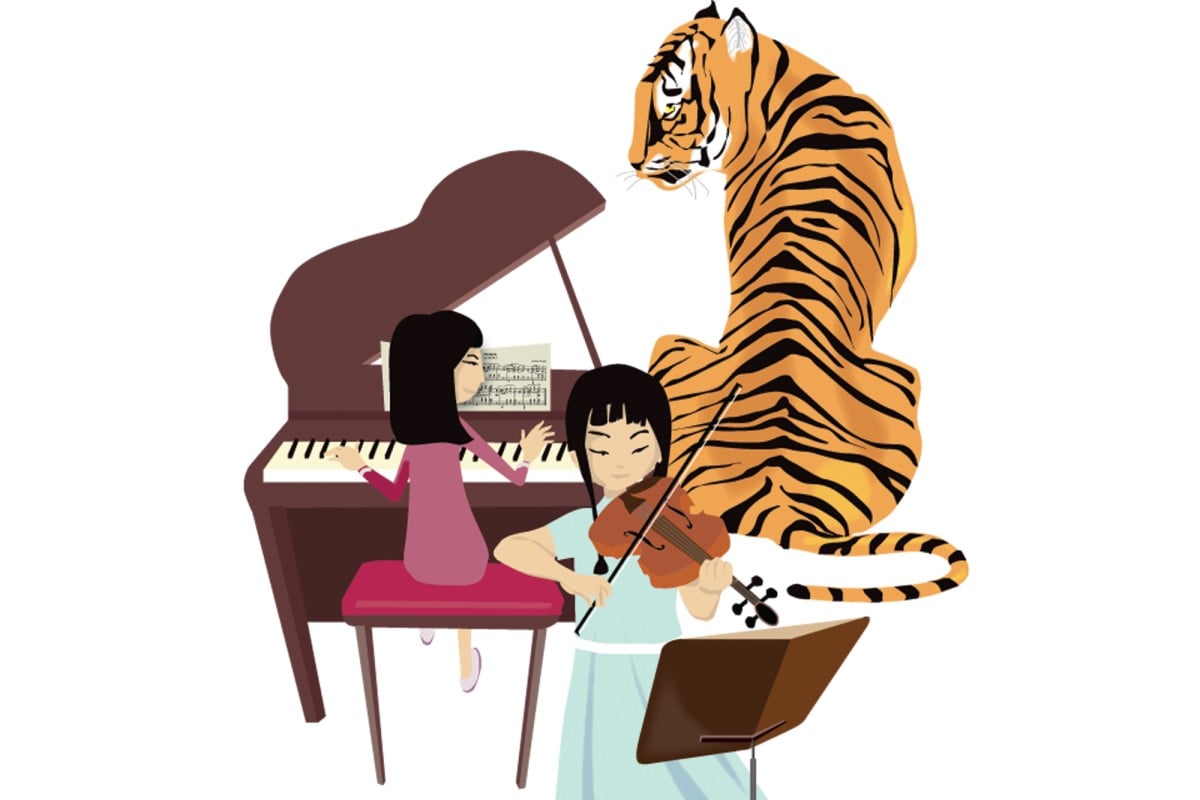
Does your mum make you attend hours of tutorial lessons every day? Is her top priority getting you a place at a good university? Has she piled on extra classes for your summer holiday? Then you might have a tiger mum.
"The tiger is the living symbol of strength and power, and generally inspires fear and respect ... as a result, 'tiger mums' broadly mean a highly demanding, authoritarian, harsh mum, though there is no concrete definition of it," says Dr Scarlett Tsoi Yee-man, a clinical children's psychologist, counsellor, and author of a parenting book whose title translates roughly as Happy Parenting, Happy Family.
"Tiger mums are very strict mothers who make their children work particularly hard and restrict their free time so that they continually achieve the highest grades. Schoolwork always comes first, and getting any grade below an A is bad. Their children go without sleepovers, play dates, TV and computer games; and to the tiger mums, academic achievement reflects successful parenting," said Tsoi, who is a mother of twin teenage boys.
Sound like your mum? Tsoi says children of tiger mums are "more disciplined, obedient, responsible and respectful". But the way tiger mums parent - using fear, like a tiger - is based on the belief their children won't listen otherwise. "In fact, children will disregard a rule if they do not fear, if they do not dislike the consequence of breaking it, or if they do not believe that the consequence will be applied," Tsoi says.
But there is also a downside. Even if the children get good grades and enrol in a good university, tiger mum-styled parenting may have negative effects. The children's stress level is high, and they may suffer from low self-esteem and even depression later on.
"The children's value system may be warped because success means being first and it means everything," Tsoi says. "Tiger parenting, which places too much emphasis on results - especially academic results - undermines pleasant experiences in the process.
"Some studies claim that tiger mums actually contribute to children's low self-esteem and high levels of depression. Tiger parenting is stressful for most children except the most compliant ones, and the risk for having anxious and depressed children is very real."
So, why do tiger mums behave this way? Why do they think their children's grades are the most important thing? Dr Daisy Chow, a clinical psychologist at the Mood Disorders Centre at Chinese University, says there are a number of reasons, from traditional values to real results.
"Traditionally, many Chinese people use authoritarian parenting style - 'tiger mum' is just its new name - and this parenting style is cross-generational," says Chow, who has a son and a daughter. Why? Because it works. "Psychologists have found that the best parenting style is authoritative, where there's a high level of control," Chow says. "This parenting style will result in children with more competence and higher academic achievement."
But if you think your tiger mum's - or dad's - tactics have gone too far, there are ways to tame her and cope with her demands. Chow suggests trying to resolve differences in a rational way, like a discussion. "You can have family meetings to negotiate if you cannot compromise and someone becomes emotional," she says. "Always suggest a cool-down time and a separation for a while to let both sides calm down before entering discussion again."
Tsoi says it's important you talk to your mum, and show respect and love at all times. "Say 'I love you' to your mum frequently, and say it in a creative way, such as in sign language," Tsoi says. "Put yourself in your mum's shoes and discuss things with her only when she's in a good mood.
"You must keep learning and be willing to make some necessary changes to have a loving, fulfilling relationship."
After all, she's doing it for you.
Tsoi and Chow were involved in the new TV show, Tiger Mom, which is inspired by the book Battle Hymn of the Tiger Mother by Amy Chua. It's airing on Star Chinese channels, weekdays at 9pm.
